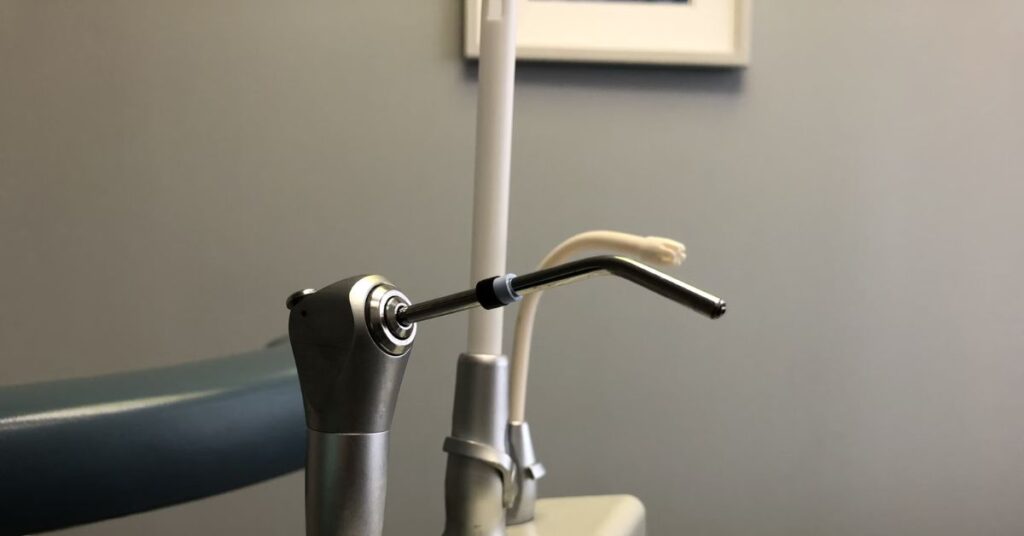Afraid of the dentist? You’re not the only one.
Dental anxiety impacts millions of Australians by turning basic dental check-ups into terrifying experiences. The good news? Multiple methods exist to overcome dental fears so you can obtain necessary dental care.
Approximately one out of seven Australian adults experience high dental fear which makes this anxiety disorder one of the country’s most widespread conditions.
When people avoid dental visits they suffer worse oral health with increased tooth decay and loss. There’s a better approach to dealing with dental anxiety.
What You’ll Discover:
- Understanding Dental Anxiety and Its Causes
- Proven Strategies to Overcome Dental Fear
- How to Choose a Dentist for Anxious Patients
- Modern Dental Technologies That Reduce Anxiety
- Ways to Stay Calm During Your Appointment
- Dental Anxiety and Overall Health
Understanding Dental Anxiety and Its Causes
Dental anxiety extends beyond mere nervousness before seeing the dentist. Dental anxiety represents a legitimate medical condition with symptoms spanning from slight discomfort to intense phobic reactions.
The fear is often rooted in:
- Previous painful or traumatic dental experiences
- Fear of pain or injections
- Feeling of helplessness or loss of control
- Embarrassment about oral health condition
- The noise from dental drills paired with the clinic’s odor act as sensory triggers for patients.
If you’ve been avoiding the dentist due to anxiety, booking an appointment with a compassionate Miranda dentist who specializes in treating anxious patients can make all the difference in your dental care experience.
Proven Strategies to Overcome Dental Fear
Dental anxiety takes time to overcome but utilizing these strategies will make your next dental appointment significantly more manageable.
1. Communication is Key
Tell your dentist about your fears. In Australia dental professionals receive training which prepares them to work effectively with patients who experience anxiety by modifying their treatment approach.
- Establish a stop signal with your dentist
- Ask questions about procedures before they begin
- Request explanations during treatment
2. Relaxation Techniques
Using simple relaxation methods leads to a substantial decrease in anxiety levels.
- Practice deep breathing by inhaling through your nose at a slow pace then holding before exhaling through your mouth.
- Progressive muscle relaxation involves sequentially tensing then releasing various muscle groups throughout the body.
- Guided imagery (visualizing a peaceful place)
3. Distraction Methods
Keeping your mind occupied can help:
- Listen to music or podcasts during treatment
- Select TV shows or video content for viewing when your healthcare provider provides this option.
- Engage your hands with a stress ball or fidget toy.
4. Psychological Approaches
For more severe anxiety, consider:
- Cognitive behavioral therapy (CBT)
- Mindfulness meditation
- Systematic desensitization (gradually facing your fears)
How to Choose a Dentist for Anxious Patients
Patients with anxiety need to find a suitable dental care provider to ensure proper treatment. When choosing dental care services in Australia you should consider the following elements:
1. Specialization in Anxiety Management
Australian dental practices now focus on providing care for patients who experience dental anxiety. Look for:
- Check their website for references to “gentle dentistry” or “anxiety management” programs.
- The dental staff undergoes training in psychological methods for handling dental anxiety.
- Positive reviews from other anxious patients
2. Environment and Atmosphere
The design and features of a dental practice’s physical space can significantly affect patient comfort.
- Calming decor and comfortable waiting areas
- Private treatment rooms
- Reduced clinical smells or sounds
3. Communication Style
During your initial consultation, assess:
- How well they listen to your concerns
- Their patience in answering questions
- Willingness to explain procedures in detail
- How they respond to your anxiety
Modern Dental Technologies That Reduce Anxiety
Modern dental technology advancements have resulted in quicker procedures that deliver precise results while minimizing patient discomfort.
1. Pain-Free Injections
Innovative techniques have transformed the traditional dental injection into a much less daunting experience.
- Computer-controlled anesthetic delivery systems
- Topical numbing gels before injections
- Vibration devices that distract from needle sensations
2. Minimally Invasive Procedures
The primary goal of modern dentistry is to retain maximum natural tooth structure during treatments.
- Air abrasion instead of traditional drilling
- Laser treatments for certain procedures
- Digital scanning instead of uncomfortable impressions
3. Sedation Options
Patients with intense anxiety can choose from multiple sedation levels.
- Nitrous oxide (laughing gas) for mild relaxation
- Oral sedatives taken before appointments
- IV sedation for deeper relaxation
- General anesthesia for complex procedures
Ways to Stay Calm During Your Appointment
Despite thorough preparation you may experience anxiety while undergoing treatment. Try these in-the-moment strategies:
1. Mindful Awareness
- Focus on your breathing
- Maintain your focus by counting breaths or items in your surrounding environment.
- Notice sensations without judgment
2. Positive Self-Talk
- Modern dental procedures have been developed to be virtually pain-free.
- Focus on the health benefits you’re gaining
- Celebrate your courage in facing your fears
3. Reward System
- Plan something enjoyable after your appointment
- Treat yourself for each successful visit
- Track your progress in overcoming anxiety
Support people play an important role in helping patients manage their dental anxiety.
The presence of a trusted companion can make a significant positive impact during dental visits.
1. Bringing a Support Person
Numerous Australian dental facilities permit patients to:
- Take along a relative or friend to join you in the treatment room
- Have someone hold your hand during procedures
- A support person can assist you by talking with dental staff on your behalf
2. Children and Dental Anxiety
When children have positive dental experiences these experiences help to prevent the development of lifelong anxiety.
- Start dental visits early (around age 1)
- Choose pediatric specialists or family-friendly dentists
- Use positive language about dental visits
- Avoid using dental appointments as a means to discipline or threaten a child.
Dental Anxiety and Overall Health
Understanding how avoiding dental care affects your overall health remains critical.
1. The Oral-Systemic Health Connection
- Research shows that poor oral health causes heart disease along with diabetes and respiratory problems.
- Without proper dental treatment patients face the risk of chronic pain along with infections in their mouth.
- Consistent dental check-ups help to avoid severe medical problems.
2. Mental Health Considerations
Dental anxiety can create a vicious cycle:
- Avoiding dentists leads to poorer oral health
- People with poor oral health often feel embarrassed and suffer from social anxiety.
- This reinforces dental avoidance behavior
- The problem becomes increasingly difficult to address
The interruption of this harmful pattern stands as a fundamental requirement to maintain healthy teeth and a sound mind.
Preparing for Your First Visit After a Long Break
Returning to dental care after many years away creates a sense of being overwhelmed at the beginning. Here’s how to make it easier:
1. Choose the Right Appointment Type
- Start with a consultation only (no treatment)
- The best time to schedule your first dental visit after a long break is a brief appointment early in the morning.
- Request additional time to go over your dental concerns.
2. Be Honest About Your Absence
- Dental professionals understand anxiety-related avoidance
- They’ve seen worse cases than yours
- Focus on moving forward, not past neglect
Key Takeaways: Conquering Your Dental Fears
Maintaining good oral health should not be hindered by the common occurrence of dental anxiety. The right dental professional combined with appropriate support and strategies can help you change your dental visits from terrifying to manageable.
Avoiding dental appointments makes existing problems worse and can lead to higher future repair costs. Acting on your dental anxiety through incremental measures now helps prevent the need for bigger dental procedures later.
Dental care services in Australia have undergone considerable changes to better serve patients who experience dental anxiety. Numerous practices provide care approaches that are specifically developed to help individuals with dental fears.
You can manage dental care needs and control your anxiety by becoming aware of your triggers while selecting an appropriate dental provider and using effective anxiety management techniques.
Your smile is worth it!







